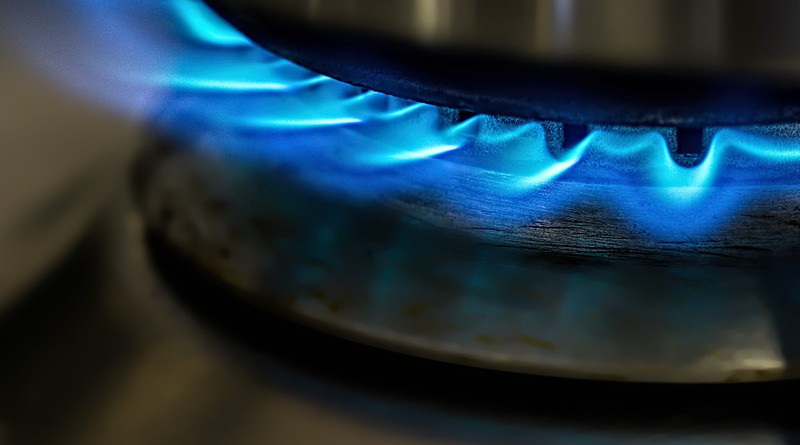EU Gas Market Overhaul Puts Consumers, Hydrogen At The Center
By EurActiv
By Frédéric Simon and Kira Taylor
(EurActiv) — A draft European Commission proposal to overhaul the EU gas market introduces new rights for consumers to choose their supplier but stops short of setting the targets demanded by industry to ramp up the consumption of renewable and low-carbon gases.
The leaked package, obtained by EURACTIV, consists of a directive setting out EU-wide rules for the internal market in natural gas and regulation on access to gas transmission networks.
The proposal, which is still subject to change before its presentation on 14 December, aims to steer the market towards low-carbon and renewable alternatives to fossil gas which needs to be phased out by 2050 to reach the EU’s climate neutrality goal.
“The European Green Deal puts the EU on a path to climate neutrality by 2050, which requires significantly higher shares of renewable energy sources in an integrated energy system,” says a cost-benefit analysis of the proposal prepared by the European Commission.
“While the share of natural gas will decrease progressively, biomethane, synthetic methane and hydrogen are expected to become more relevant,” the document adds.
However, the Commission says those alternatives are not yet available at scale and face regulatory barriers that impede their deployment and trade across EU borders. The document adds that consumers also do not have “the necessary rights and tools to choose the most cost-effective decarbonisation options in the market.”
The gas package aims to address this by introducing new rights for consumers and “creating a new framework for an internal hydrogen market to achieve a cost-efficient clean hydrogen economy”.
Hydrogen market
The need to decarbonise Europe’s gas supply has become pressing. While electricity’s share in energy demand is expected to double and reach 53% of total energy use by 2050, “gaseous fuels will continue playing an important role in the energy system” for the remainder of energy use, the Commission writes.
Therefore, a key objective of the proposal is to “facilitate the emergence of an open and competitive EU hydrogen market” and “ensure access of renewable gases” based on an EU-wide certification system to ascertain their carbon content.
“Low-carbon hydrogen”, for instance, must meet a greenhouse gas emission reduction threshold of at least 70% under the proposed directive.
“Transmission system operators shall accept cross-border flows of gases with a hydrogen content of up to 5% by volume,” according to the draft, which suggests this will come in from 1 October 2025.
Alongside this, the package proposes a new body, the “European Network of Network Operators of Hydrogen” (ENNOH), which will bring together hydrogen transport companies.
Green campaigners are sceptical about this and warned that hydrogen networks risk being overwhelmingly reliant on fossil gas for the foreseeable future. According to them, the obligation for network operators to accept up to 5% blended hydrogen into natural gas also supports fossil fuels.
“This package is completely at odds with what we know is needed to manage the phase-out of fossil gas in Europe. The Commission should be focussing on protecting European consumers from dodgy greenwashing deals and bearing the cost of unnecessary hydrogen pipes,” said Tara Connolly, senior gas campaigner at NGO Global Witness.
“We sincerely hope that Commission officials will recognise just how poor these proposals are and go back to the drawing board, ahead of the official publication in December,” she added.
Active customers
Under the Commission proposal, new rights for consumers will include the possibility to choose from at least two suppliers, with the possibility of having separate contracts for natural gas or hydrogen at the same time.
For the first time, consumers will also be encouraged to become active participants on the market and join forces in “citizen energy communities for natural gas”, allowing them to “purchase or lease distribution networks and to autonomously manage them” thanks to smart metering systems.
With gas prices currently at an all-time high, EU countries will set gas prices for vulnerable consumers based on a common EU-wide definition of energy poverty.
Governments will also be encouraged to cooperate more closely to facilitate the emergence of regional markets across EU borders.
No targets for industry
Yet, industry players will be disappointed that the draft proposal does not introduce targets for the production or consumption of renewable and low-carbon gases – a move they say is needed to accelerate change in the sector and ensure sufficient volumes of decarbonised gases are available to consumers.
James Watson, secretary-general of trade association Eurogas, says the need to decarbonise gas “is recognised beyond the gas industry” among energy users in the mobility, power generation and buildings sectors.
“With 15 other associations spanning these areas, we have been calling for binding EU targets to reduce the GHG intensity of gas consumed by 20% and increase renewable gas supply to 11% by 2030,” Watson said.
These targets “also need to be supported by measures for a tradable market, including Guarantees of Origins, also for low carbon gases,” he said.
Green lawmakers also expressed disappointment.
“This gas package of the EU Commission is a ‘carry on’ with the previous energy policy. With this proposal, the Commission is pandering to the interests of the gas lobby instead of finally committing to a clear path out of fossil energies,” Green MEP Michael Bloss told EURACTIV.
“This will secure the business model of the gas giants, but the loser in this game will remain the climate. In the end, our dependence on gas will cost us all dearly because we are currently experiencing the risk of a gas shortage at first hand with regard to the exploding energy costs,” he added.

